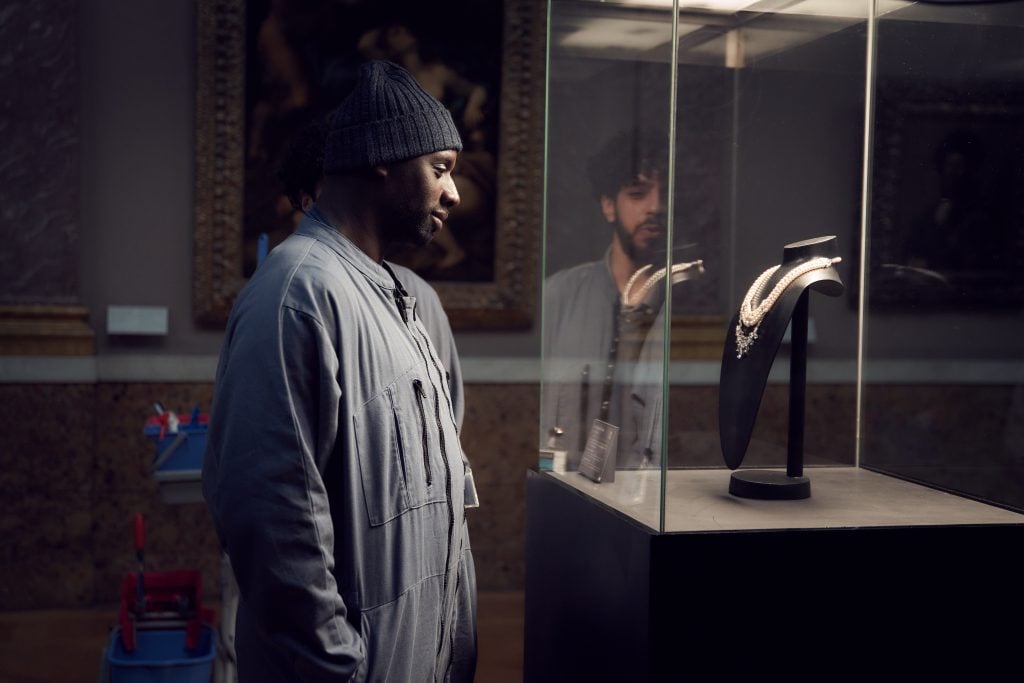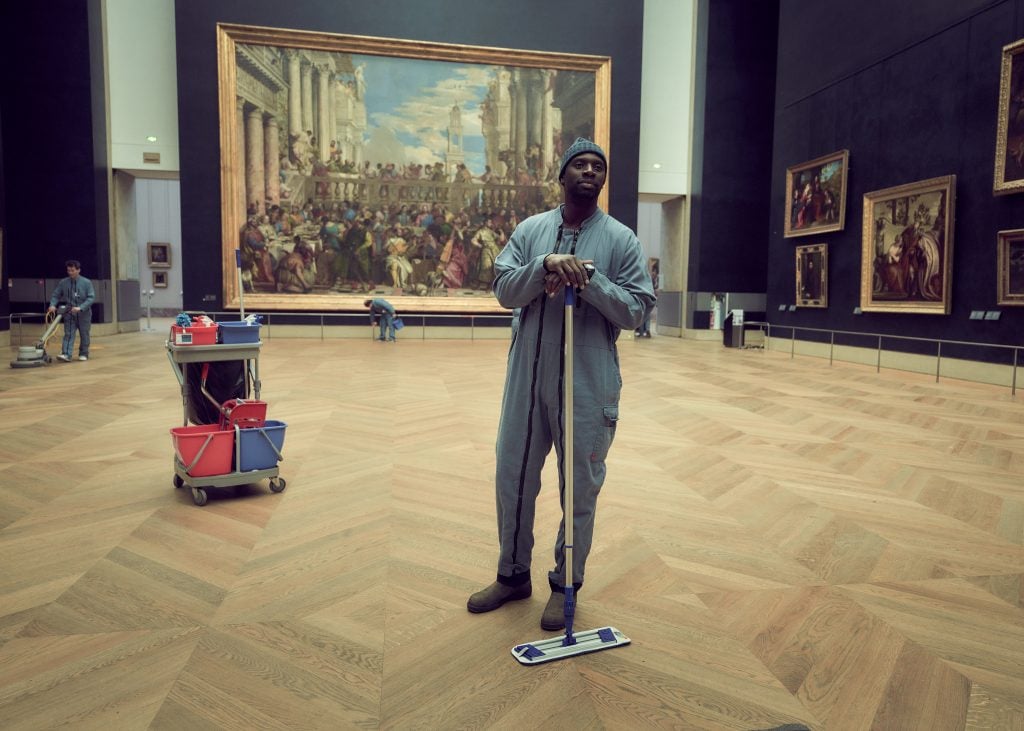Pop Culture
Netflix’s Latest Hit Series Stars a Master of Disguise Who Plans an Ingenious Art Heist at the Louvre—Watch the Thrilling Trailer Here
The action-packed mini-series stars the acclaimed French actor Omar Sy.

The action-packed mini-series stars the acclaimed French actor Omar Sy.

Kate Brown

Lupin, a hit new Netflix show about a thief who steals Marie Antoinette’s prized jewels from the Louvre, is captivating viewers around the world.
The series, which has climbed to Netflix’s top-10 list in France, the US, and Germany, reinvents the story of the fictional “gentleman thief” and master of disguise Arsène Lupin, created by French writer Maurice Leblanc in 1905.
In this ultra-contemporary reinterpretation, the main character, Assane Diop (Omar Sy), pulls off a cunning heist at the Louvre as he seeks to avenge his father’s death, unraveling the underbelly of the privileged and wealthy class who operate above the law.

Still from Lupin. Photo: Emmanuel Guimier/Netflix.
On its surface, Lupin is a slick heist story. But its deeper themes focus on class, race, and a broken legal system that treats the ultra-rich differently than the lower classes.
Sy (who co-starred in the French film The Intouchables) is the driving force of the series, and plays a charismatic and witty French-Senegalese man who is also a stylish master burglar.
The major event of the show takes place at the Louvre (the series was shot on location), where Diop, disguised as a multimillionaire collector, pulls off a meticulously laid-out heist.

A still with Omar Sy, who stars in the new Netflix series Lupin. Photo: Emmanuel Guimier/Netflix.
Yet his spectacular theft is not motivated by money, but by his pursuit of answers about the untimely death of his father, who was framed for an earlier theft of the same jewels.
The undercurrent theme of the show is the painful reality of racism in Europe, especially for immigrants from former colonies.
Issues of restitution and reparations, which have become the focus of real-life conversations in Europe in recent years, linger throughout the series, which stresses the normalization of conversations concerning colonialism.
Part two of the show will be released in April. See a trailer for the series below.